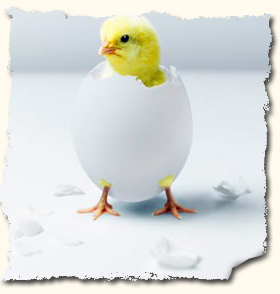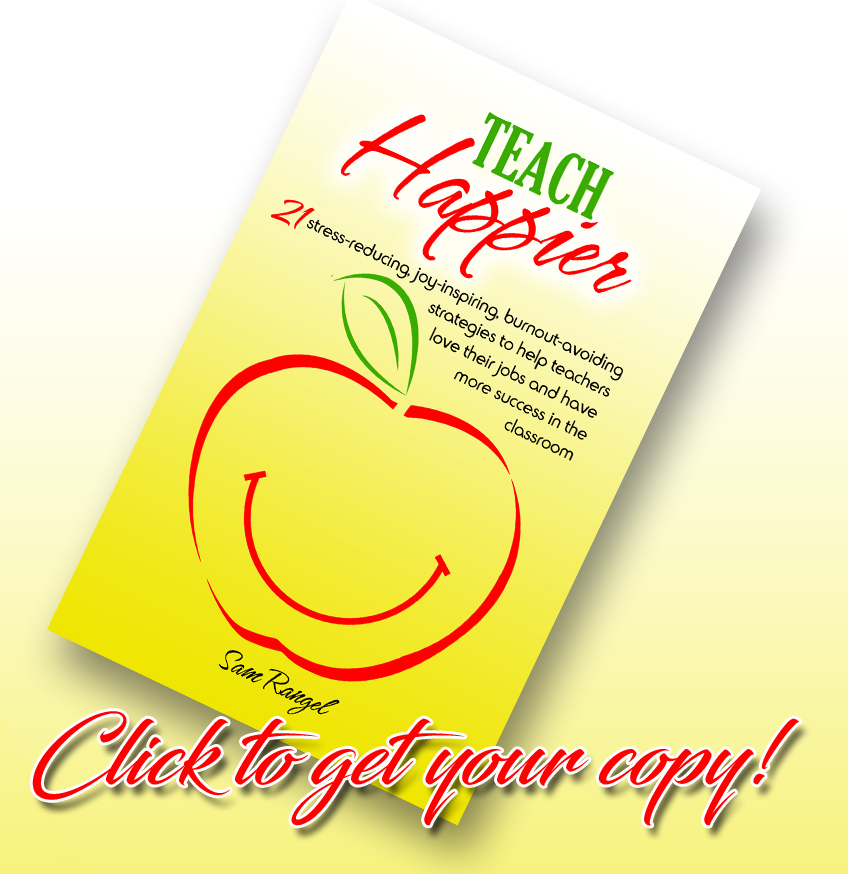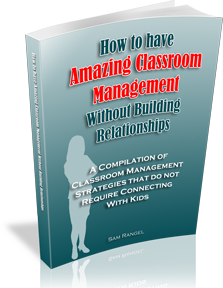
The other day, I asked a question to the class about what we had been studying.
I called on one student, and he looked back at me with one of those I’m-going-to-not-say-anything-and-hope-the-teacher-chooses-another-student looks. My temptation was to give the student a break and ask the question to the student who always has his hand up. I think everybody in the class was expecting me to do that. Isn’t that the nice thing to do? Why is the teacher going to make the student uncomfortable by forcing him to answer a question to which he obviously doesn’t know the answer?
Well I didn’t do that. I waited. The class waited. The whole world waited. The student seemed a little surprised that I just didn’t move on and ask someone else.
He didn’t know the answer, but I waited until he finally asked, “What was the question again?”
That’s what I wanted. I wanted him to consider the question, think about what the answer could be, and finally give me his response.
He did. It was wrong, but that was O.K.
I told him, “Good guess, but (then I addressed the class) if you remember what we studied…,” and I gave out the right answer.
I know that if there is one question on the test that that student will get right, it will be that one. Why?
Because I made him stress out a little. Stress sometimes can be good. We learn from our mistakes. The best life lessons come from the failures we encounter. It’s the same with school. If a student struggles, he/she will learn better. That student may have crossed me off his Christmas list, but he learned.
I recently posted a response to one of the posts by Elona Hartjes’ blog Teachers At Risk. She wrote about how teachers sometimes make things too easy for students. I wrote about how I respond to students who say I’m too tough. I tell them the story of Chick A and Chick B.
Here’s a condensed version:
There was study made by scientists. They wanted to see what would happen to chickens if they were helped out of the egg shell when they hatched.
When Chick A was pecking on the inside of the shell, the scientist carefully began pulling apart the shell of the egg, and carefully pulled Chick A free without the baby chick having to struggle at all. I tell the students that Chick A loved the scientists for making things so easy for it.
When Chick B started pecking, however, the scientist did nothing. They just watched as the baby chicken struggle for what seemed hours to break free from the shell. When the baby chick was finally out, I tell my students, it was mad at the scientists for making it work so hard.
Then I tell the students that as the chickens grew older, Chick A grew up weak and scrawny. It couldn’t fend for itself, and in order to survive, the scientists had to feed it separate from the other chickens.
Chick B, on the other hand, grew up strong, and did not need any help from the scientists.
What the scientists learned was that the struggle it takes a chick to break out of its shell is where many essential muscles are formed. The struggle was important for the chicken’s survival.
I tell the students that Chick A grew to hate the scientists. Whereas Chick B learned to appreciate the struggle that the scientists made it go through.
That’s when I tell the students the moral of the story. I could get them all to like me by giving them an easy year with no struggles, but that would not be to their benefit. I tell them that because I want them to grow up to be independent and not requiring outside help like government assistance, I will make them struggle. “You may hate me now, but someday, you’ll thank me.”
I don’t know if the story of the scientists is true, but it sounds good, and it makes the kids understand why I’m not going to be the “easy” teacher.
So, go ahead and wait for the answer. Make that uncomfortable moment a learning experience for the student. You have to be delicate about it, but don’t let the student off the hook. Force them to take guess. Encourage them to try and answer the question. Remind them that they know the answer. If they get it wrong, say,”good try,” and move on. You want to keep it as stress-free as possible, but a little stress can be good.
If they get it right, make a big deal about it. They’ll remember that too.
What do you think? Can stress be a good thing in the classroom?
Thanks,
Sam




I can see where you are coming from and I suppose, your intentions could be argued as good. However, too many young people in schools are placed under this kind of stress. What you describe and seek to justify leads to the kind of difficulties about learning and behaviour in schools about which we are all too aware.
I agree that stress and learning from mistakes can be important in the learning process but it is not fair, clever or professional to deliberately humiliate young learners in front of their peers, especially those who have learning difficulties and may have already experienced the kind of failure you describe. Think about, for example, what having communication, memory and recall difficulties might mean to a learner. It is this kind of stress that contributes to anxieties about learning (anxieties that many learners already have), makes learning appear difficult and leads to failure – never assume that young learners can deal appropriately with this! Many of them cannot – they are not you! The result, a cycle of failure that becomes ever harder to break!
Please do not interpret this as an argument to make learning easier. I am not! Learning is a challenge and learners need to be challenged to learn but what you have written is insensitive and displays a lack of understanding about learning – just take a good look at what the research says! Your post is also irresponsible, purporting as it does to give advice to other teachers including the young and inexperienced. I am sorry to be so negative but your post angered me and someone needs to stand up for leaners and a more appropriate learning process in schools!
Hi Dave,
Your original comment was marked as spam, so I didn’t see it until I checked my spammed messages. In response to your comment, however, I would never deliberately humiliate a student. As I mentioned in my post, you have to be delicate about it. You of course would be careful about using this strategy with students with learning disabilities. Maybe I should have added that. I’m surprised you were so upset by it, and I think calling it insensitive is a little much, and I question if you read the entire post. I would encourage you to read my other posts to see the kind of learning environment my classroom is. Perhaps I should have include a sentence that said the first step in turning stressful moments into learning experiences is establishing your classroom as a safe place to make mistakes. I see your point, but in my experience, if you give students an opportunity to slide by, they will, and that is not fair to them.
Thank you for your comment and for your dedication to students.
Sam